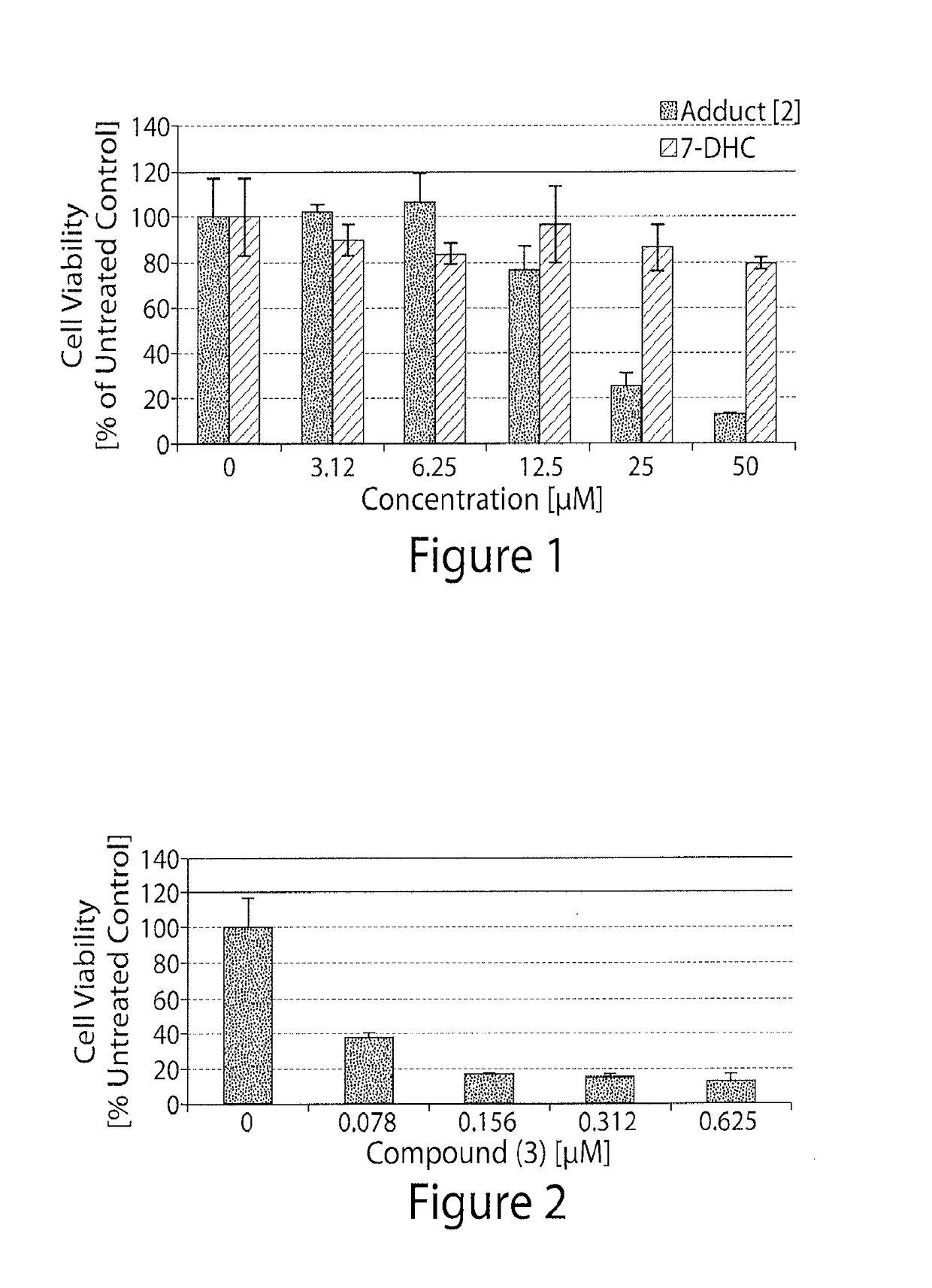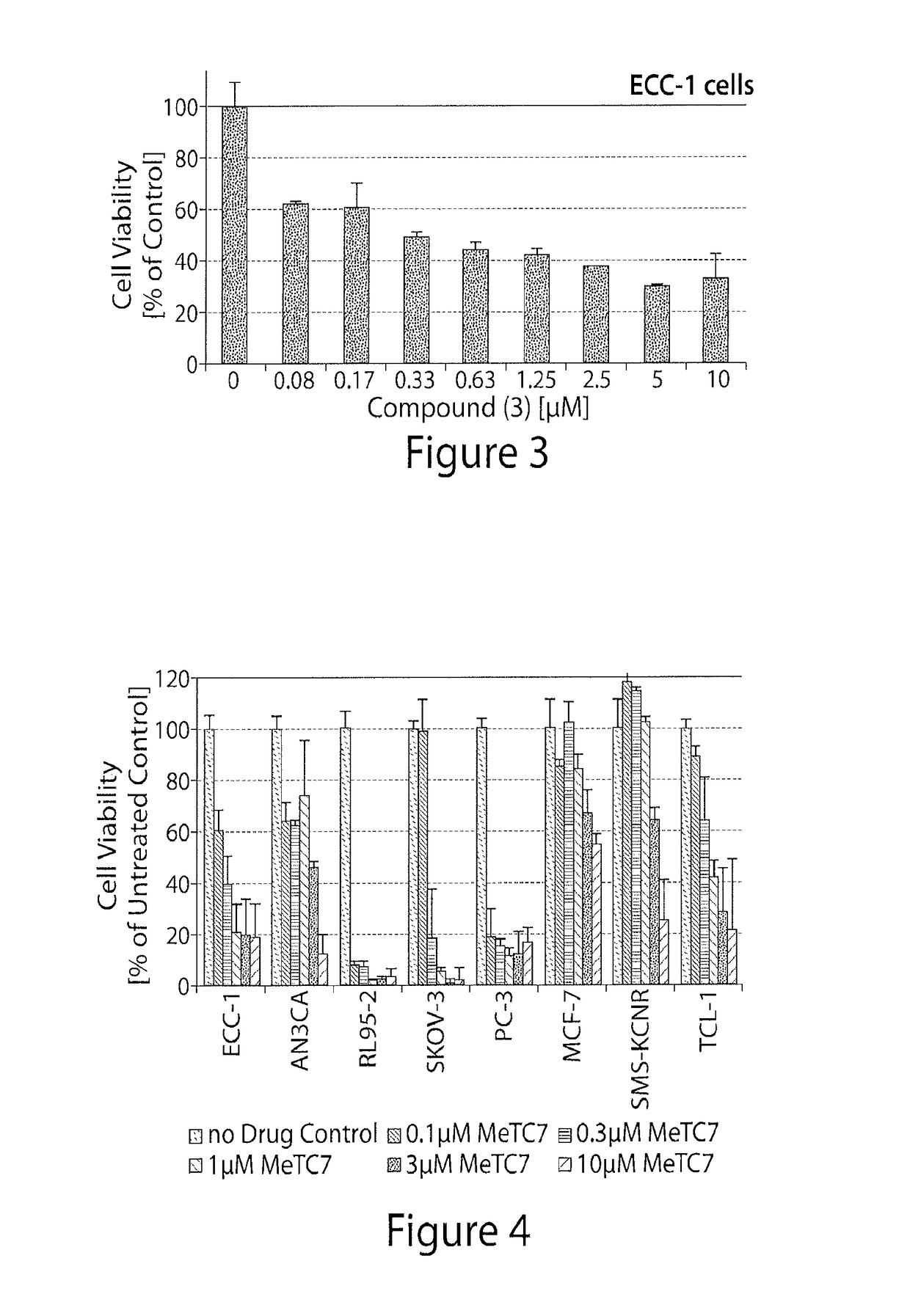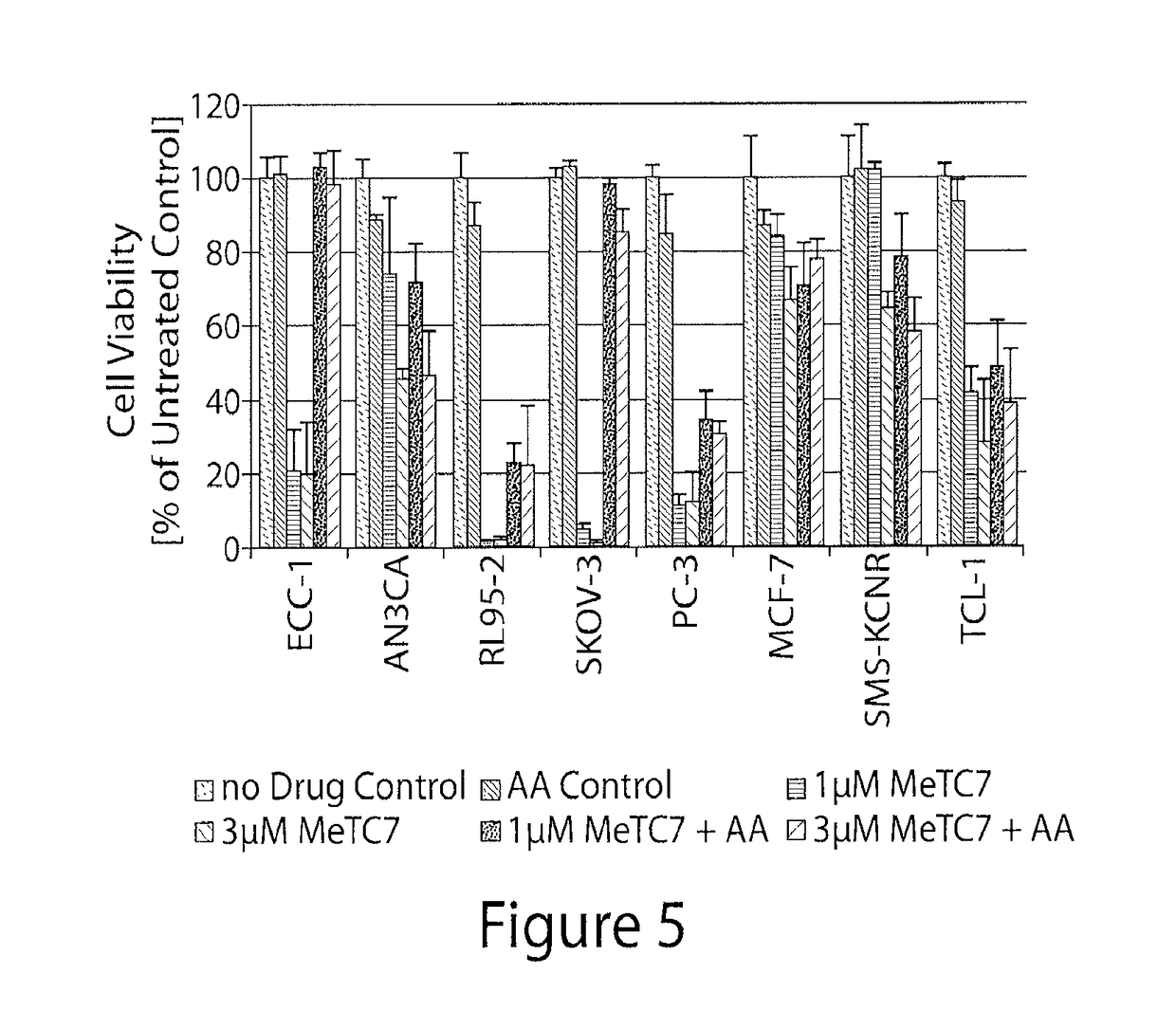7-dehydrocholesterol derivatives and methods using same
a technology of 7-dehydrocholesterol and derivatives, applied in the field of 7-dehydrocholesterol derivatives and methods using same, can solve the problems of not all tumors are cancerous, damage genes, cancerous mutations, etc., and achieve the effect of treating or preventing cancer, and preventing uncontrolled angiogenesis
- Summary
- Abstract
- Description
- Claims
- Application Information
AI Technical Summary
Benefits of technology
Problems solved by technology
Method used
Image
Examples
example 1
[0306]To a solution of commercially available 7 dehydrocholesterol (7DHC) (0.2 millimoles in ethyl acetate) and was added 1,2,4-triazolinedione (0.22 millimoles) under nitrogen atmosphere, and the system was stirred under the dark at 0-4° C. for 3 hours. The pink color eventually disappeared. The solvent was removed under vacuum.
[0307]The residue crude dry residue (0.07 millimoles) was added to a stirred suspension of bromoacetic acid and dicyclohexylcarbodiimide (DCC) in dichloromethane at 0-4° C. under a nitrogen gas atmosphere. The reaction mixture was stirred overnight, filtered to remove the resulting dicyclohexyl urea. The clear solution was evaporated and concentrated under reduced pressure to generate an oily residue, which was purified by preparative TLC.
[0308]The well resolved band was extracted with 20% methanol in dichloromethane, and the compound was isolated by evaporating the solvent under the reduced pressure, to produce a white to pale yellow solid (yield: 35-75% de...
example 2
of Cell Viability of Ovarian Cancer Cells
[0310]Exemplary compounds of the invention were tested in an ovarian cancer cell line (SKOV-3), using 7-dehydrocholesterol (7DHC) as a control.
[0311]SKOV-3 cells were seeded (5,000 cells / well) in complete DMEM (supplemented with 10% fetal bovine serum and 1% antibiotic) and allowed to adhere overnight. Media was replaced with a fresh complete DMEM media containing varying concentrations of the drugs of interest. DMSO was used as control. At a suitable interval (varying from 1 minute to 4 days), the media was replaced again with complete RPMI (supplemented with 10% fetal bovine serum and 1% antibiotic) containing MTS dye (Invitrogen Inc.) and incubated for a period varying from 10 minutes to 1 day. The absorbance of the media was read at varying wavelengths, advantageously at 492 nM in an ELISA reader.
[0312]FIG. 1 illustrates the reduction in cell viability of the SKOV-3 cells upon treatment with Compound (2).
[0313]FIG. 2 illustrates the reduc...
example 3
of Cell Viability of Endometrial Cancer Cells
[0314]An exemplary compound of the invention (Compound (3)) was tested in an endometrial cancer cell line (ECC-1).
[0315]ECC-1 cells were seeded (10,000 cells / well) in complete RPMI (supplemented with 10% fetal bovine serum and 1% antibiotic) and allowed to adhere over night. Media was replaced with a fresh complete RPMI media containing varying concentrations of Compound (3). DMSO was used as control. At suitable intervals (varying from 1 minute to 4 days), the media was replaced again with complete RPMI (supplemented with 10% fetal bovine serum and 1% antibiotic) containing MTS dye (Invitrogen Inc) and incubated for period (varying from 10 min to 1 day). The absorbance of the media was read at varying wavelengths, advantageously at 492 nM in an ELISA reader.
[0316]FIG. 3 illustrates the reduction in cell viability of the ECC-1 cells upon treatment with Compound (3).
PUM
| Property | Measurement | Unit |
|---|---|---|
| droplet size | aaaaa | aaaaa |
| temperature | aaaaa | aaaaa |
| rectal temperature | aaaaa | aaaaa |
Abstract
Description
Claims
Application Information
 Login to View More
Login to View More - R&D
- Intellectual Property
- Life Sciences
- Materials
- Tech Scout
- Unparalleled Data Quality
- Higher Quality Content
- 60% Fewer Hallucinations
Browse by: Latest US Patents, China's latest patents, Technical Efficacy Thesaurus, Application Domain, Technology Topic, Popular Technical Reports.
© 2025 PatSnap. All rights reserved.Legal|Privacy policy|Modern Slavery Act Transparency Statement|Sitemap|About US| Contact US: help@patsnap.com



